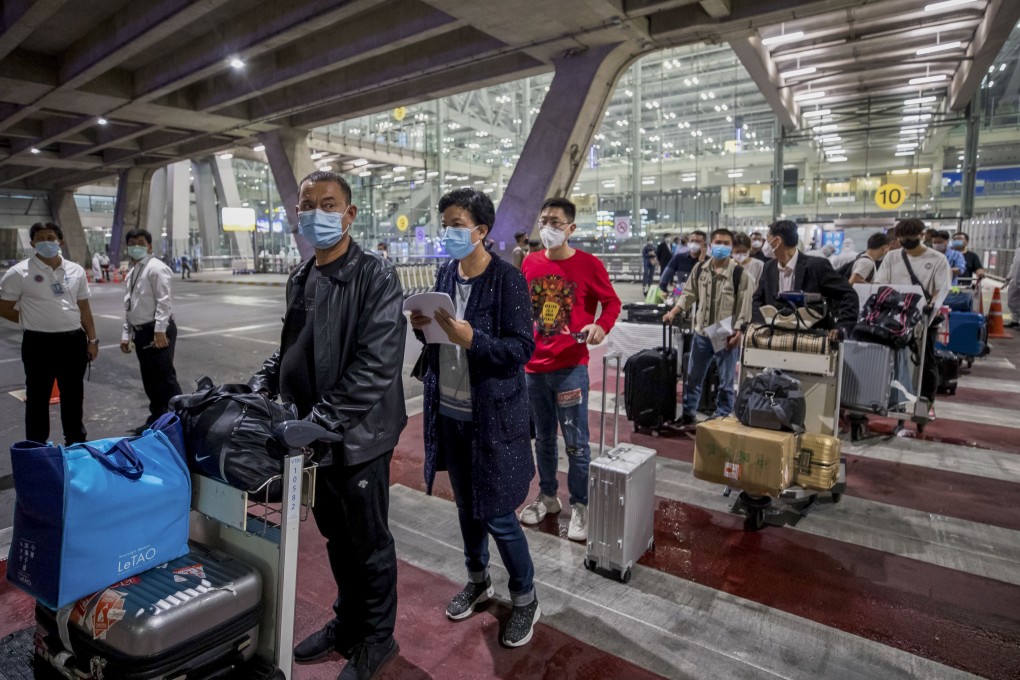Coronavirus: second group of Chinese tourists set to fly to Thailand on Monday
- About 100 people will take-off from Guangzhou bound for Bangkok under Thailand’s special tourist visa scheme
- Visitors can stay for up to nine months under new arrangement, but must first complete 14 days of quarantine and undergo regular checks for Covid-19

Most of the group will be travelling under the special tourist visa (STV) scheme that was introduced by Bangkok after an earlier plan to allow people to visit only designated destinations like Phuket or Koh Samui was scrapped for fear of infection risks.
During their stay in Thailand, they must take multiple Covid-19 tests and have special travel insurance. They must also download a contact tracing app allowing the authorities to keep tabs of their whereabouts.
The visits come as China’s tourism authorities expressed caution at relaxing controls on outbound tours, stressing the importance of preventing the cross-border spread of the coronavirus. The Ministry of Culture and Tourism recently said it would be extending its ban on outbound international group tours.